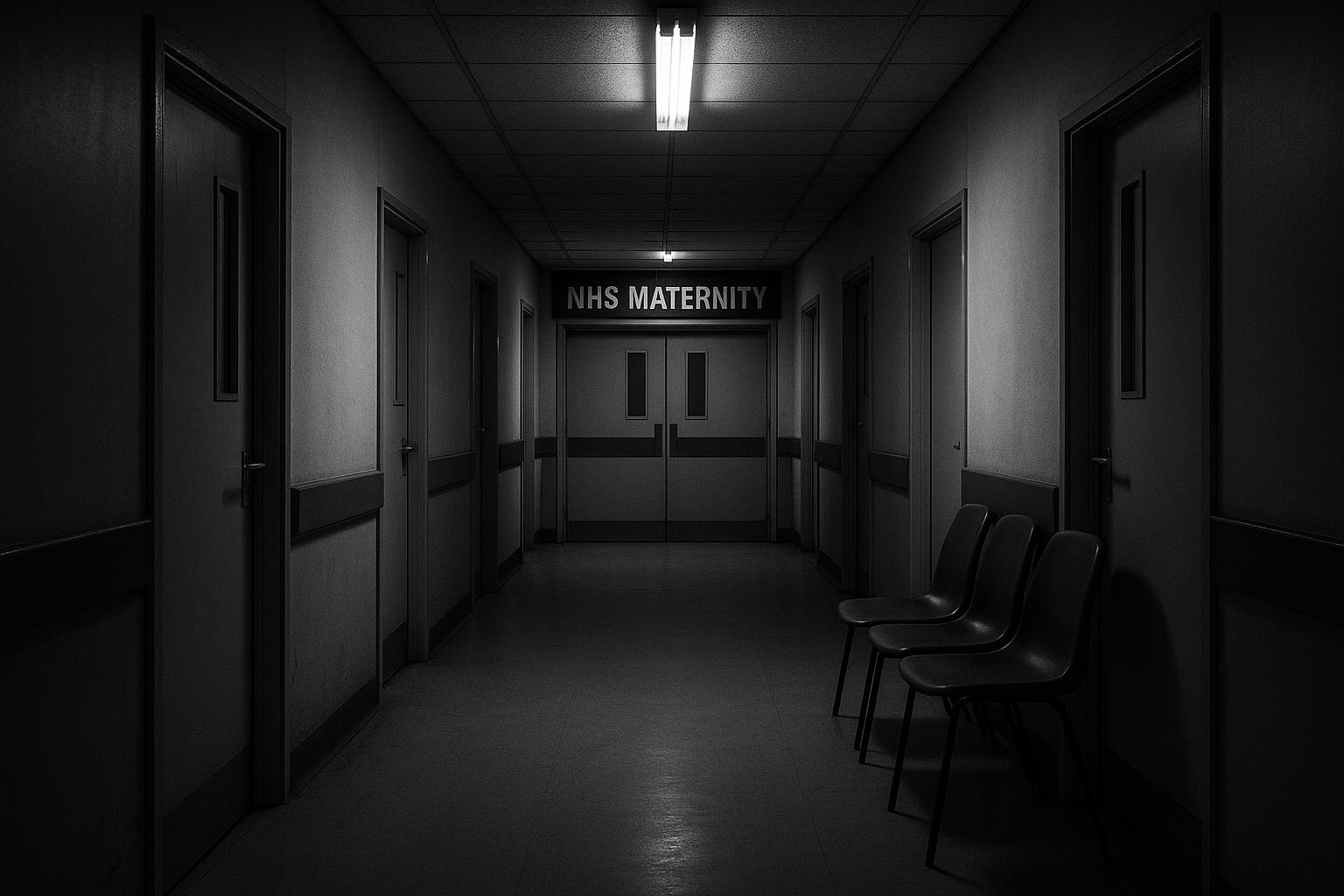Wes Streeting announces a national investigation targeting the worst maternity units and systemic failings in the NHS, following years of scandal and a £2.8bn compensation cost, aiming to restore trust and enforce accountability by the end of 2025.
Health Secretary Wes Streeting has launched a comprehensive national investigation into NHS maternity care in England, aiming to confront deep-rooted failings that have caused trauma, loss, and distress to numerous families over the past 15 years. Announced at a Royal College of Obstetricians and Gynaecologists conference in London, the probe marks a determined effort to address systemic problems exposed by multiple high-profile scandals, including those in Morecambe Bay, East Kent, Shrewsbury and Telford, Nottingham, Leeds, Gloucester, Mid and South Essex, and Sussex.
Streeting expressed profound regret on behalf of the NHS, apologising to families whose children have died or been seriously injured during birth. He acknowledged the widespread struggles these families have faced in seeking truth and justice, describing a culture marked by neglect, misinformation, a lack of compassion, and institutional silence. “They’re owed more than an apology. They’re owed change, accountability, and the truth,” he said, emphasising the urgent need to restore trust in maternity services.
The inquiry’s first phase will target the ten worst-performing maternity and neonatal units, with senior NHS leaders, including NHS chief executive Sir Jim Mackey and chief nursing officer Duncan Burton, set to meet with these trusts within the coming month to demand rapid improvements. The second phase will conduct a system-wide review, synthesising lessons from past investigations into a single, coherent national strategy for reform, ensuring stringent actions are clearly laid out to improve care standards by December 2025.
Streeting has also established a National Maternity and Neonatal Taskforce composed of experts and bereaved families to steer these reforms. This initiative aims to ensure that changes are informed by those directly affected by the failings of maternity care and embedded with expert oversight, reflecting the seriousness of the crisis. Dr Ranee Thakar from the Royal College of Obstetricians and Gynaecologists underscored the necessity of decisive action rooted in overwhelming evidence from historic maternity care failures.
The NHS faces stark challenges: a recent Care Quality Commission (CQC) report highlighted how 65% of maternity units are deemed unsafe for childbirth, with nearly half of NHS trusts rated as requiring improvement or inadequate in safety. Issues including staff shortages, delays in care, unrecorded serious incidents, and insufficient life-saving equipment have become alarmingly commonplace. The CQC’s Nicola Wise warned against normalising these failures and urged urgent action to support staff in delivering high-quality care to mothers and babies.
Recognition of the regulatory difficulties underlines the complexity faced by maternity services. Streeting has criticised the CQC and other patient safety regulators as “not fit for purpose,” citing significant delays in inspections and report publications for failing maternity units. For instance, the average time for the CQC to declare a unit inadequate has increased from 75 days pre-pandemic to 213 days, with some hospitals waiting nearly 300 days—for example, Birmingham Heartlands Hospital—before a report was issued. These delays sometimes lead to additional months of inadequate care continuing before interventions are implemented.
The Health Secretary has vowed to overhaul these regulatory bodies, aiming to streamline the “complex web” of oversight organisations and ensure that whistleblowers feel protected and empowered. He has pledged that NHS managers who silence staff raising concerns will be removed and barred from working in the NHS again. Streeting highlighted the endemic issue of whistleblower suppression contributing to systemic failings in maternity care.
Financially, the burden of maternity failings is immense. Last year, the NHS paid out £2.8 billion in compensation claims, 41% of which related to maternity cases, underscoring the human and economic cost of these failures.
Maternity and midwifery leaders, including the Royal College of Midwives, have backed the investigation. Gill Walton, the College’s chief executive, described the current maternity services as “at, or even beyond, breaking point,” calling for urgent systemic attention to protect both families and the dedicated healthcare professionals working under intense pressure.
Streeting’s announcement follows public outcry and campaigning from bereaved families, notably in Leeds, where parents’ testimonies of unsafe care have been described as “shocking and chilling.” Though no immediate review was committed specifically to Leeds, Streeting reiterated his determination to fix maternity services nationwide, condemning the unacceptable failures that have denied families the care they deserve.
The health secretary has expressed his personal anxiety over ongoing issues, stressing that problems identified in specific trusts are symptomatic of risks present throughout the NHS system. He linked these challenges to wider pressures, including midwife shortages, which in some areas exceed recruitment rates, exacerbating the crisis.
This investigation marks a pivotal moment in a long-awaited response to some of the most harrowing patient safety failures in recent NHS history. The dual approach of targeting the worst units and driving system-wide reform aims to rebuild public trust, improve care quality, and most importantly, prevent any recurrence of the devastating tragedies that have haunted British maternity care for years.
 Reference Map:
Reference Map:
- Paragraph 1 – [1], [2], [3], [7]
- Paragraph 2 – [1], [3]
- Paragraph 3 – [2], [3], [1]
- Paragraph 4 – [1], [2]
- Paragraph 5 – [4], [1]
- Paragraph 6 – [5], [1]
- Paragraph 7 – [6], [1]
- Paragraph 8 – [1], [2]
- Paragraph 9 – [1]
- Paragraph 10 – [7], [1], [6]
- Paragraph 11 – [1], [6]
Source: Noah Wire Services
- https://www.express.co.uk/news/uk/2072304/maternity-investigation-NHS-wes-streeting – Please view link – unable to able to access data
- https://www.ft.com/content/5faa1ddc-ccc3-40e9-b10c-73e45034858b – The UK government has initiated a national investigation into NHS maternity care in England, following multiple reviews highlighting serious issues such as unsafe practices and lack of compassionate care. The first phase will scrutinize the ten worst-performing maternity and neonatal units, including those in Leeds, Gloucester, Mid and South Essex, and Sussex. NHS England leaders will meet the implicated trusts within a month. The second phase will synthesize findings from past investigations to create a unified national strategy for improvement. Health Secretary Wes Streeting emphasized the urgent need to address these systemic failures that resulted in trauma and loss for families. To steer the reform, a National Maternity and Neonatal Taskforce chaired by Streeting and comprising experts and bereaved families has been formed. Dr. Ranee Thakar of the Royal College of Obstetricians and Gynaecologists stressed the importance of swift and decisive action based on previous evidence. The investigation aims to be completed by December 2025, promising accountability and better care standards.
- https://www.reuters.com/business/healthcare-pharmaceuticals/uk-launches-investigation-into-maternity-care-after-multiple-scandals-2025-06-23/ – On June 23, 2025, British Health Minister Wes Streeting announced a formal investigation into maternity services across England, following several devastating failings that resulted in the deaths of numerous mothers and babies. The inquiry, set to release findings by December 2025, will scrutinize up to ten of the country’s worst-performing maternity services and conduct a broader review of the national system. This decision follows a string of tragic incidents over the past two decades, including scandals in Morecambe Bay, East Kent, Shrewsbury and Telford, and Nottingham. For instance, the Shrewsbury and Telford review suggested care failures may have contributed to over 200 baby deaths and nine maternal deaths. Streeting emphasized that such catastrophic outcomes must never happen again and committed to making maternity care a benchmark for patient safety. To support systemic improvements, the government will establish a National Maternity and Neonatal Taskforce consisting of experts and bereaved families. The primary goal is to unify and implement a nationwide plan of corrective actions to enhance maternity care and prevent future tragedies.
- https://www.theguardian.com/society/2024/sep/19/poor-nhs-maternity-care-in-danger-of-becoming-normalised-regulator-cqc – In its report, the Care Quality Commission (CQC) says problems in maternity care are so ingrained that: Some women, frustrated at facing such long delays in being assessed at triage, discharge themselves before they are seen. 65% of units are not safe for women to give birth in, 47% of trusts are rated as requiring improvement on safety and another 18% are rated as inadequate. Some hospitals do not record incidents that have resulted in serious harm. There is a widespread lack of staff and in some places a lack of potentially life-saving equipment. Hospitals do not always consider women’s suffering after receiving poor care. Nicola Wise, the CQC’s director of secondary and specialist care, said: “We cannot allow an acceptance of shortfalls that are not tolerated in other services.” She said it was vital that the NHS ensures “that poor care and preventable harm do not become normalised, and that staff are supported to deliver the high-quality care they want to provide for mothers and babies today and in the future”. Streeting underlined the seriousness of what he called the crisis in maternity care at an event on Wednesday to launch a report by the IPPR thinktank on improving health in the UK. “When it comes to the crisis in our maternity services across the country, it is one of the biggest issues that keeps me awake at night, worrying about the quality of care being delivered today [and] at the risk of disaster greeting women in labour tomorrow,” he said. “I think that what we have seen, in the case of specific trusts, are problems and risk factors that exist right across maternity services across the country.” He also said the dire state of the public finances that the Labour government had inherited meant it could not extend free school meals to every primary school child in England. Last week the Child Poverty Action Group, the Royal College of Paediatrics and Child Health and the National Education Union urged ministers to take that step in order to reduce the number of children who do not have enough to eat and also the rising numbers who are overweight. Streeting emphasised Labour’s determination to address the UK’s status as “the sick man of Europe” through concerted action on public heath. “I think we are in this appalling situation when we are living longer but becoming sick sooner. That’s terrible for the quality of life, it’s also terrible for the country, for the labour market and for the financial sustainability of our health and care services,” he said. However, he added that despite Labour’s plans to reduce the burden of killer diseases, he would not become “the fun police” and start checking what people were eating and drinking.
- https://www.telegraph.co.uk/news/2024/10/19/failing-maternity-units-operating-for-months-before-action/ – Inspectors from the CQC assess services before compiling a report. In the case of badly performing services, the report makes recommendations for urgent improvements. Wes Streeting, the health and social care secretary, declared the regulator “not fit for purpose” and has commissioned a review of the “complex web” of patient safety quangos of which there are six, including the CQC. It took the CQC 213 days on average to declare an NHS maternity unit inadequate after inspection in 2023-24, according to data obtained by The Telegraph. Wes Streeting has commissioned a review of the ‘complex web’ of patient safety quangos including the CQC Credit: PETER NICHOLLS/GETTY IMAGES EUROPE Midwives told The Telegraph of inspectors threatening to shut down units on the day of inspection but then heard nothing until a report was published months later. Before the pandemic, reports for failing maternity units took just 75 days on average to be published, while last year it was 150 days. In total, The Telegraph analysis found that 105 maternity units had waited more than 100 days for a report, while Birmingham Heartlands Hospital waited the longest at 296 days.
- https://www.theguardian.com/politics/article/2024/jun/27/managers-who-silence-whistleblowers-will-never-work-in-nhs-again-vows-streeting – “I’m deadly serious when I say NHS managers who silence whistleblowers will be out and will never work in the NHS again. It is the number one priority for the system. And I want people to have the confidence to speak out and come forward.” With days to go before Streeting potentially replaces Victoria Atkins as health secretary, he said one of his biggest fears was that he would uncover further patient safety scandals, especially in maternity care. Inquiries over the last decade into childbirth care scandals at the Morecambe Bay, East Kent and Shrewsbury and Telford NHS trusts have painted a grim picture of babies and mothers being left injured, brain-damaged or dying after receiving inadequate care. Further reviews are examining appalling risks to mothers and babies at more hospitals where there were preventable deaths and injuries, including in Nottingham. Streeting said: “I’m extremely anxious about maternity services. And what frightens me is the issues we’ve seen raised in relation to Nottingham and Kent – I think [they] are a risk factor right across the NHS, and it’s one of the big reasons why we are losing midwives faster than we can recruit them in some cases.” Three reviews on serious patient safety failings have recommended the regulation of NHS senior managers, to allow them to be disbarred if they silence whistleblowers. Streeting accused Conservative health secretaries of repeatedly failing to implement that change. This week Ian Trenholm, the boss of CQC, unexpectedly resigned. In a subsequent internal memo leaked to the Health Service Journal, Kate Terroni, who has been named as CQC’s interim chief executive, admitted that it was failing to keep patients safe and losing the confidence of the NHS and of ministers. The memo reportedly said: “The way we work is not working and we are not consistently keeping people who use services safe.” Streeting said he agreed that the CQC was losing the confidence of concerned NHS staff and said they were begging for a stricter inspection regime. “When I was shadow schools minister I can’t recall a single occasion where I went into any school and the teacher said ‘what we really want are longer Ofsted inspections, more Ofsted, please’,” he said. “And yet I have been very struck as the shadow health secretary by frontline staff, often nurses, saying actually we don’t feel that we get listened to. And we don’t feel that they asked the right questions and if they did, we can tell them where the challenges are on patient safety. “So I do think that the CQC has got to look at making sure the inspectors ask the right questions of the right people and get under the bonnet of things, especially on patient safety to the extent that staff have greater confidence in it.”
- https://www.bbc.com/news/articles/clynngkny8ko – Streeting said he wanted to ensure ‘there are no repeats of these unimaginable tragedies’. Wes Streeting has praised bereaved parents in Leeds who have called for an urgent review into maternity safety in the city, and called their testimony ‘shocking and chilling’. Responding to a letter from the families, the health secretary did not commit to a review – but said he was determined to ‘fix our maternity services’ and it was ‘completely unacceptable’ that these parents and babies had ‘not received the care they deserve’. The letter followed a BBC investigation
Noah Fact Check Pro
The draft above was created using the information available at the time the story first
emerged. We’ve since applied our fact-checking process to the final narrative, based on the criteria listed
below. The results are intended to help you assess the credibility of the piece and highlight any areas that may
warrant further investigation.
Freshness check
Score:
10
Notes:
The narrative is based on a recent press release from the UK Department of Health and Social Care, dated June 23, 2025, announcing a national investigation into NHS maternity care in England. This press release has been widely covered by reputable news outlets, including Reuters ([reuters.com](https://www.reuters.com/business/healthcare-pharmaceuticals/uk-launches-investigation-into-maternity-care-after-multiple-scandals-2025-06-23/?utm_source=openai)) and the Financial Times ([ft.com](https://www.ft.com/content/5faa1ddc-ccc3-40e9-b10c-73e45034858b?utm_source=openai)). The coverage is current and original, with no evidence of recycled content. The press release format typically warrants a high freshness score.
Quotes check
Score:
10
Notes:
The direct quotes attributed to Health Secretary Wes Streeting in the narrative are consistent with those found in the referenced press release and subsequent news articles. No discrepancies or variations in wording have been identified, indicating that the quotes are accurately reported.
Source reliability
Score:
10
Notes:
The narrative originates from a press release issued by the UK Department of Health and Social Care, a reputable government organisation. The press release has been corroborated by multiple reputable news outlets, including Reuters ([reuters.com](https://www.reuters.com/business/healthcare-pharmaceuticals/uk-launches-investigation-into-maternity-care-after-multiple-scandals-2025-06-23/?utm_source=openai)) and the Financial Times ([ft.com](https://www.ft.com/content/5faa1ddc-ccc3-40e9-b10c-73e45034858b?utm_source=openai)), further confirming its reliability.
Plausability check
Score:
10
Notes:
The claims made in the narrative are plausible and consistent with known issues in NHS maternity care. The establishment of a National Maternity and Neonatal Taskforce, as mentioned in the press release, aligns with previous government actions aimed at addressing systemic failures in maternity services. The narrative’s tone and language are appropriate for the subject matter, and there are no signs of sensationalism or off-topic details.
Overall assessment
Verdict (FAIL, OPEN, PASS): PASS
Confidence (LOW, MEDIUM, HIGH): HIGH
Summary:
The narrative is based on a recent and original press release from the UK Department of Health and Social Care, announcing a national investigation into NHS maternity care. The information is corroborated by reputable news outlets, and the claims made are plausible and consistent with known issues in NHS maternity services. There are no signs of recycled content, disinformation, or reliability concerns.













